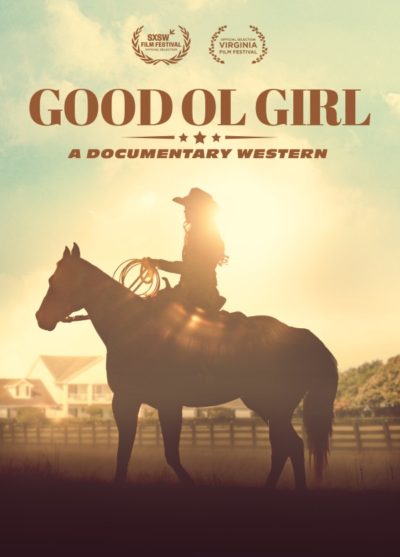★★★
“It’s… complicated.”
 This documentary takes a look into the lives of three women in Texas, who are all operating in the male-dominated world of ranching. Some were born into it, while others came to it through choice. In particular, Mandy Dauses falls into the latter category, having left her East-coast home because she felt that Texas represented the best chance to fulfill her ambition of becoming a ranch manager. On the other hand, Sara Lemoine Knox is struggling to balance what she feels is an obligation to carry on in the family business, with her own goal of becoming a lawyer. Meanwhile, Martha Santos is looking to find work in that line, but without her own property, is finding it a challenge.
This documentary takes a look into the lives of three women in Texas, who are all operating in the male-dominated world of ranching. Some were born into it, while others came to it through choice. In particular, Mandy Dauses falls into the latter category, having left her East-coast home because she felt that Texas represented the best chance to fulfill her ambition of becoming a ranch manager. On the other hand, Sara Lemoine Knox is struggling to balance what she feels is an obligation to carry on in the family business, with her own goal of becoming a lawyer. Meanwhile, Martha Santos is looking to find work in that line, but without her own property, is finding it a challenge.
It’s a way of life which is gradually becoming more endangered for both men and women. For example, Martha’s family used to own land near Laredo, but they sold it to satisfy the ever-increasing appetite for land on which homes and businesses could be built. Similarly, Sara’s heart really isn’t in farming, even though she was given her first property, covering 160 acres, at the age of 12. Even beyond their chosen (or imposed) profession, they have other ambitions. Mandy desperately wants to start a family, but at age 37, time is running out for her. Though during the course of the documentary, she does discover she is pregnant. These are all imperfect lives, and that’s probably the point, offering an non-idealized take that’s radically different from the fictional, romantic version of cowgirls.
Dauses likely represents the most interesting and complex of the characters. On the one hand, she’s clearly a strong, independent woman, who moved half-way across American in pursuit of her dreams. On the other, she still cooks dinner for her long-term boyfriend, John, who expects a meal to be ready on the table when he comes home (regardless of the fact that she has her own job, too). Outside of the story of her pregnancy, however, there is not much sense of development. This is more a snapshot of the three women’s lives at this moment in time, without any narrative. When the end credits roll, nobody is particularly in a different place from there they were at the beginning.
This is not to say there’s any need for forced drama, but there’s not even much sense of time passing. Contrast, say, documentary series Clarkson’s Farm, which had a much more compelling narrative, simply through covering an entire year. Of course, it had the advantage of more time to tell its story, but the dramatic moments here, such as coming across a dead cow in the middle of giving birth, have no particular emotional resonance. Instead, it’s most interesting when you are shown the difficult task the women have to balance the various forces (internal or external) in their lives, looking to achieve harmony. The film probably needed to do a better job of that itself, if it wanted to have a lasting impact.
Dir: Sarah Brennan Kolb
Star: Mandy Dauses, Sara Lemoine Knox, Martha Santos, Joyce Gibson Roach




